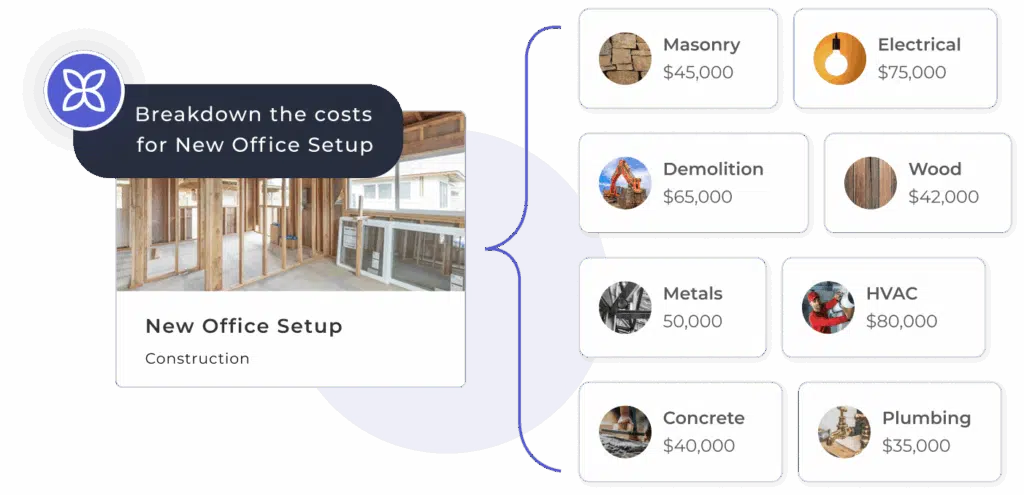Managing complex estate projects requires sophisticated coordination across multiple stakeholders, significant budgets, and intricate timelines. Whether overseeing renovations, maintenance programs, or new construction initiatives, effective project management for estates can mean the difference between seamless execution and costly overruns that threaten both budgets and family relationships.
Furthermore, today’s family offices, asset managers, and estate professionals face unprecedented complexity in project oversight. Additionally, with multiple properties spanning different regions and varying regulatory requirements, the need for systematic project management approaches has never been more critical.
The Stakes of Estate Project Management
Estate projects aren’t just about managing timelines and budgets—they’re about preserving generational wealth while maintaining the privacy and standards that ultra-high-net-worth families expect. For instance, when a renovation project at a $20 million estate runs over budget by 40%, it’s not just a financial setback; it’s a breach of trust that can impact relationships for years to come.
Moreover, estate projects often involve sensitive coordination between family members, staff, vendors, and regulatory authorities. According to research from the Project Management Institute, critical challenges include managing stakeholder relationships, establishing proper change control procedures, and implementing effective escalation processes—all particularly crucial when managing high-stakes estate environments. Additionally, a single miscommunication can cascade into significant delays, cost overruns, or compliance issues that expose families to unnecessary risk.

Core Components of Effective Estate Project Management
Strategic Planning and Scope Definition
Successful project management for estates begins with comprehensive planning that accounts for both immediate needs and long-term objectives. Furthermore, this involves understanding the family’s vision, establishing clear success criteria, and defining project boundaries that protect against scope creep.
Essential planning elements include:
- Detailed needs assessment involving all stakeholders
- Clear definition of project objectives and success metrics
- Moreover, risk assessment specific to high-value estate environments
- Regulatory compliance review for applicable jurisdictions
- Additionally, integration with existing estate operations and staff schedules
Budget Management and Financial Controls
Estate projects demand sophisticated financial oversight that goes beyond traditional project management. Additionally, families require transparent reporting that demonstrates value while protecting sensitive financial information.
Financial control strategies encompass:
- Multi-tier budget approval processes that respect family governance
- Real-time cost tracking with variance analysis and early warning systems
- Furthermore, vendor payment management that maintains preferred relationships
- Change order protocols that balance flexibility with budget discipline
- Finally, comprehensive documentation for tax and estate planning purposes
Stakeholder Communication and Relationship Management
Estate projects involve complex stakeholder relationships that require delicate management. From family principals to household staff, each group has different information needs and communication preferences.
Effective communication protocols include:
- Tailored reporting for different stakeholder groups
- Regular progress updates that maintain transparency without overwhelming recipients
- Furthermore, escalation procedures that address issues quickly while respecting family hierarchy
- Documentation systems that support decision-making and future reference
- Moreover, privacy protection measures that maintain confidentiality throughout the process
Technology Integration for Estate Project Management
Modern project management for estates benefits significantly from purpose-built technology solutions. However, generic project management tools often fall short of estate-specific requirements for privacy, complexity, and integration with existing operations.
Advanced technology capabilities should include:
- Secure, cloud-based project tracking accessible to authorized stakeholders
- Integration with existing estate management systems and financial platforms
- Furthermore, mobile capabilities for on-site project oversight and real-time updates
- Document management systems that maintain version control and access restrictions
- Finally, automated reporting that reduces administrative burden while maintaining transparency
Risk Management in Estate Projects
Estate projects face unique risks that require specialized mitigation strategies. Therefore, effective project management for estates must address both traditional project risks and estate-specific vulnerabilities.
Insurance and Liability Considerations
High-value estates require comprehensive insurance coverage during project phases. Specifically, this includes protecting against construction-related damage, theft of valuable assets, and liability exposure from contractor activities.
Privacy and Security Protocols
Estate projects often require external contractors to work in sensitive environments. Consequently, robust security protocols must balance project needs with family privacy and asset protection requirements.
Regulatory Compliance Management
Many estate properties are subject to complex regulatory requirements, from historic preservation rules to environmental regulations. Therefore, project management must ensure compliance while maintaining project timelines and budgets.
Specialized Project Types in Estate Management
Construction and Renovation Projects
Large-scale construction projects represent some of the most complex challenges in estate management. Estate construction project management requires specialized expertise that combines traditional construction management with estate-specific requirements for quality, privacy, and integration with ongoing operations.
Key considerations include:
- Minimizing disruption to family activities and existing operations
- Maintaining security and privacy during construction phases
- Furthermore, coordinating with existing staff and service providers
- Managing multiple contractor relationships while maintaining quality standards
- Finally, ensuring compliance with local regulations and family standards
Technology Infrastructure Projects
Modern estates require sophisticated technology infrastructure that supports both operational needs and family lifestyle requirements. These projects demand careful coordination between multiple specialty contractors and integration with existing systems.
Landscape and Grounds Management Projects
Estate grounds often represent significant investments that require ongoing enhancement and maintenance. Therefore, project management must balance aesthetic objectives with practical considerations like maintenance requirements and seasonal constraints.
The Role of Professional Project Managers
Effective project managers for estates must combine traditional project management expertise with deep understanding of family office operations and high-net-worth client needs. Furthermore, they serve as crucial intermediaries between family vision and contractor execution.
Essential competencies include:
- Experience with high-value, complex project environments
- Understanding of family office governance and decision-making processes
- Moreover, strong communication skills for diverse stakeholder groups
- Financial acumen for budget management and cost control
- Finally, risk management expertise specific to estate environments
Technology Solutions for Estate Project Management
Comprehensive estate management platforms provide integrated solutions that address the unique challenges of project management for estates. These systems offer centralized project tracking, secure stakeholder communication, and integration with broader estate operations.
Platform capabilities should include:
- Centralized project dashboards accessible to authorized stakeholders
- Budget tracking and financial reporting with appropriate access controls
- Document management systems that maintain version control and security
- Communication tools that respect privacy requirements while enabling collaboration
- Integration capabilities that connect with existing estate management systems
Best Practices for Estate Project Success
Establish Clear Governance Structures
Successful estate projects require clear decision-making authority and escalation procedures. This includes defining roles for family members, estate managers, and external project managers.
Implement Robust Change Management Processes
Estate projects often evolve as family needs change or new opportunities emerge. Therefore, effective change management processes must balance flexibility with budget and timeline discipline.
Maintain Detailed Documentation
Comprehensive project documentation serves multiple purposes, from supporting insurance claims to providing historical records for future projects. Additionally, proper documentation supports estate planning and succession activities.
Prioritize Quality Control
Estate projects demand exceptional quality standards that exceed typical commercial requirements. This necessitates enhanced quality control processes and regular inspections throughout project phases.
Measuring Project Success in Estate Environments
Success metrics for estate projects extend beyond traditional measures of time, budget, and scope. Family satisfaction, operational impact, and long-term value preservation are equally important considerations.
Comprehensive success criteria include:
- Budget performance within acceptable variance ranges
- Timeline adherence with minimal disruption to family activities
- Quality outcomes that meet or exceed estate standards
- Stakeholder satisfaction across all involved parties
- Integration success with ongoing estate operations
- Risk mitigation effectiveness throughout project phases
The Future of Estate Project Management
As estate operations become more sophisticated and family expectations continue to evolve, project management approaches must adapt accordingly. This includes embracing new technologies while maintaining the personal service and attention to detail that families expect.
Moreover, the integration of artificial intelligence and predictive analytics offers opportunities to enhance project planning and risk management. However, these technological advances must be implemented in ways that respect privacy requirements and family preferences.

Moving Forward with Confidence
Effective project management for estates requires a unique combination of traditional project management expertise and deep understanding of family office operations. By implementing comprehensive planning processes, robust financial controls, and appropriate technology solutions, estate professionals can deliver exceptional results while protecting family interests.
The complexity of modern estate projects demands professional expertise and sophisticated systems. Whether you’re overseeing construction projects, technology upgrades, or operational improvements, having the right project management approach is essential for success.
Ready to enhance your estate project management capabilities and deliver superior results for the families you serve?
Contact us today to discover how comprehensive project management solutions can transform your approach while maintaining the privacy and quality standards your clients expect.



